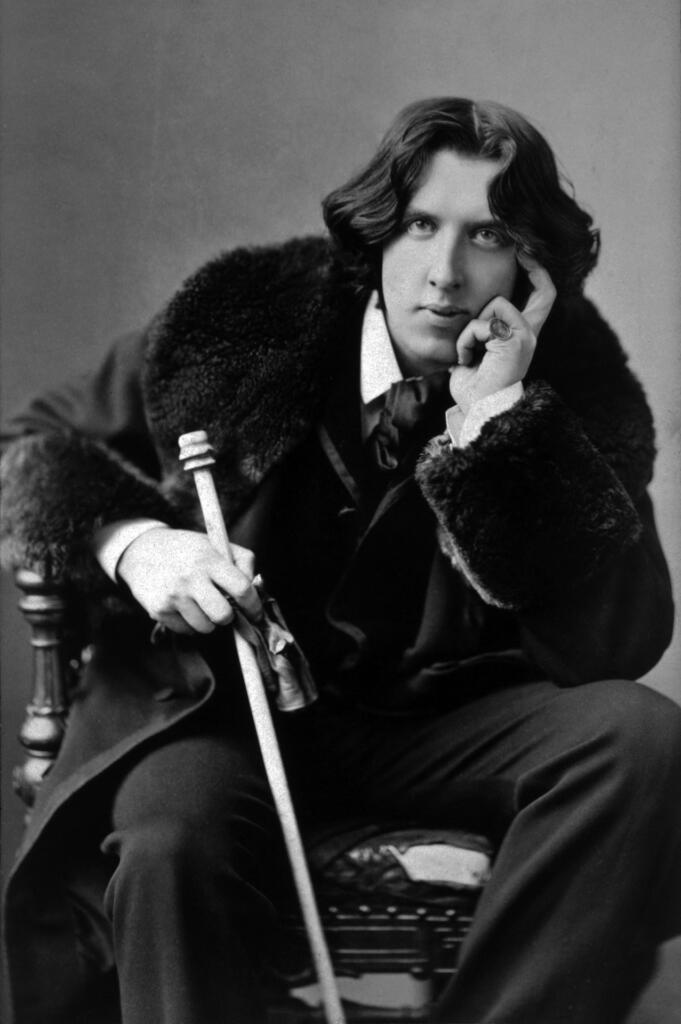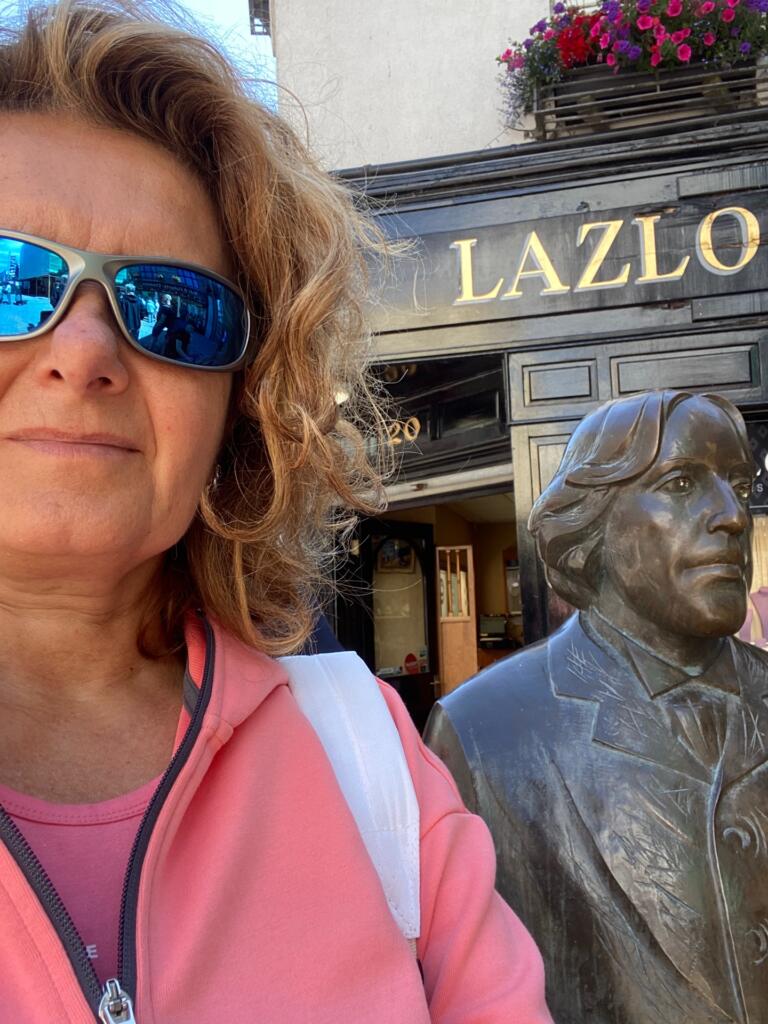
“Il ritratto di Dorian Gray” è il più noto romanzo dello scrittore irlandese Oscar Wilde, vissuto nel IX secolo, famoso anche per il suo stile di vita anticonformista e dandy. Un concentrato di arte e moralità, espressione della poetica dell’autore oltre che dell’Estetismo e del Decadentismo sempre oggetto di polemiche anche nella sua epoca, in opposizione al Realismo in auge nei decenni precedenti. La lettura di questo libro, che è stato definito prima fiction gotica o horror poi narrativa filosofica, accompagna attraverso vizi e virtù di chi vuole spingersi oltre i propri limiti, costi quel che costi, con un percorso di introspezione ed evoluzione.
È un’esperienza immersiva, consigliata a chi è disposto ad andare oltre le apparenze, senza alcun giudizio.

“In mezzo alla stanza, alto su un cavalletto, stava il ristratto a intera figura di unu giovane di singolare bellezza, e di fronte ad esso, poco lontano, sedeva il pittore, Basilio Hallaward, la cui improvvisa scomparsa alcuni anni fa suscitò tanto interesse nel pubblico e fece sorgere strane congetture”.
Il ritratto di Dorian Gray, Oscar Wilde
DORIAN, UOMO DI VIZI E VIRTU’
Leggendo o rileggendo le pagine di “Il ritratto di Dorian Gray”, adatto a tutte le età, è come ascoltare le confidenze più segrete del suo autore. Ci si immerge tutto d’un fiato nelle avventure dell’affascinante gentiluomo londinese, ma l’effetto è un coinvolgimento superiore a quello di una serie TV. Dorian, il giovane carismatico alla moda si ritrova presto sull’orlo del baratro morale, e fra una riga e l’altra di questo libro spesso viene da pensare “è proprio vero”, la vita è propio così.
In primo piano svetta il patto con il diavolo di colui che è disposto a vendersi l’anima pur di restare giovane e bello. L’arte come specchio dell’anima è un tema controverso, che sostiene il più grande pregio di quest’opera, ovvero lo smascheramento del cinismo.
“…l’arte di vedere le cose come sono, non come dovrebbero essere”
Oscar Wilde
Il protagonista è un antieroe, in cui a volte ci si rispecchia. Qui si svela il PRIMO TESORO di Wilde. Quante volte ci ritroviamo a pensare tutto il bene possibile di qualcuno (diciamo la verità anche di noi stessi), salvo scoprire che la realtà è ben diversa e viceversa?

IL GRILLO PARLANTE E L’ARTISTA
La figura che forse colpisce ancora di più è Lord Henry, il cinico amico di Dorian. Il grillo parlante di questo romanzo edonistico, apologeta della bellezza e della gioventù, che svela le ipocrisie che tutti noi prima o poi usiamo come scudo. Nostro malgrado la realtà è più cruda di quanto non vogliamo accettare. Naturalmente non è lui il vero responsabile del crescente degrado di Dorian. Lord Henry ha solo il coraggio di dire le cose come stanno, senza sconti.
L’etica, la morale, i sentimenti e i valori del protagonista sono spesso soffocati da vanità, egoismo e ambizione. Troppo facile dividere i personaggi fra buoni e cattivi, la linea di demarcazione non è mai così precisa. In alcuni momenti della lettura siamo portati a pensare che l’arte sia il fine ultimo, “l’arte per l’arte stessa”, ma nemmeno questo è del tutto vero. È solo un pretesto? Il pittore Basil, caro amico di Dorian e autore ispirato del suo magico ritratto, con le sue opere sembra offrire la via nobile per salvare il mondo, ma sarà proprio lui a pagare il prezzo più caro.

QUAL’E’ IL FINE ULTIMO?
Comunemente si considera che per l’autore il fine giustifica i mezzi, ma confesso che non credo ci si a tal proposito una risposta definitiva.
Letto in gioventù si rimane colpiti dalle caratteristiche di un romanzo romantico e giallo allo stesso tempo, che colpisce la fantasia prima ancora del cuore. Da adulti l’effetto è completamente diverso. Balzano agli occhi i risvolti etici e psicologici. È chiaro come i comportamenti agiscano sui nostri cambiamenti. E qui il secondo tesoro dell’autore: nel bene e nel male, siamo artefici del nostro destino.
Di sicuro non è una lettura rassicurante, ma non si tratta solo della lotta fra il bene e il male. Battute fulminanti, pillole di saggezza e realismo, che diciamo la verità, riguardano anche noi e la società in cui viviamo. Ci siamo quasi abituati a tutto ciò, mentre Oscar Wilde, che ha scritto queste parole nel 1891, ha pagato in prima persona con il carcere per le sue scelte di vita. Stima infinita ad un autore dissacrante e mai banale, che suscita discussioni e riflessioni. Le sue affermazioni, infatti, danno ancora oggi da pensare.
“Lo scopo della vita è lo sviluppo di noi stessi, la perfetta attuazione della nostra natura: è questa la ragione d’essere di ciascuno di noi.”
Oscar Wilde
Quindi, siamo al mondo per attuare noi stessi, auto-realizzazione, o per realizzare un disegno cosmico che porta all’immortalità?
Questo libro, più di altri, offre attraverso i suoi molteplici piani di lettura spunti di riflessione che riguardano l’animo umano e le tematiche cruciali della vita come i sentimenti e la spiritualità. Buona lettura!
“La bellezza salverà il mondo” Fëdor Dostoevskij

Elena Cattaneo, cremonese di nascita e romana di adozione, è appassionata di arte e comunicazione. Come insegnante, editor e web reporter vive la sua città anche dopo diversi anni con la curiosità e la sorpresa di una turista. A seguito della Laurea in lingue e il perfezionamento in Scienze della Comunicazione si è dedicata in maniera trasversale alla comunicazione d’impresa.
Ha coltivato nel tempo svariati interessi culturali con il gusto della scoperta artistica e del confronto umano.
